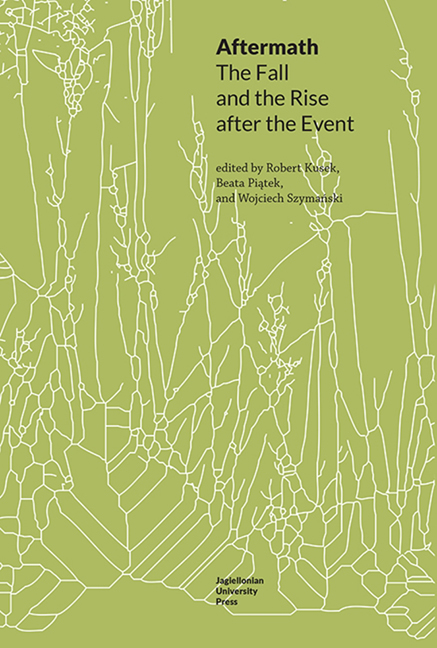Life, End of: Secular Eschatology in Christine Brooke-Rose's Out and Anna Kavan's Ice
Published online by Cambridge University Press: 06 November 2021
Summary
Introduction
Speaking of liminal events and borderline experiences, in her influential work Powers of Horror Julia Kristeva theorises the abject, assessing it to be something that essentially “disturbs identity, system, order. What does not respect borders, positions, rules. The in-between, the ambiguous, the composite” (Kristeva 1982: 4). The dynamics and violence inherent to abjection, oftentimes “articulated by negation and its modalities, transgression, denial, and repudiation” (6; emphases in the original), seem very pertinent to contemporary understandings of notions of the event and the aftermath, both of which appear to be characterised by intrinsic subversiveness, non-concreteness, and abjectal transgressiveness. An important subject to a whole host of theoreticians, including Baudrillard, Deleuze, or Derrida, they have already been conceptualised in academia in a number of ways that account for their complex ontic status. To exemplify: following Lyotard's theory of libidinal economy, one could equate an event with an instance of an energetic (or libidinal) influx into a formal (e.g., societal) system, which that system cannot contain or structure. It is a rupture in its workflow; something that goes beyond the normal and the quotidian, and what cannot be contextualised by an individual in its entirety, not unlike the object of Kristeva’s abjection. In this sense,
The truth of a being, since we must speak in this way, taken as a sign, turns out to be situated outside the sign, and even […] above it. This being signifies something other than what it is: it signifies that of which it is the simulacrum, but, because it is not what it signifies, it also signifies the distance which keeps them apart, dissimilitude, the lack of being which separates them. (Lyotard 2015: 84; emphases in the original)
Such a polarising and, in many ways, unorthodox understanding of the event is a sort of volta in the postmodern intellectual thought. Thus interpreted, the structuration of whole societies, of cultural heritage, and of art, is based on the economy of libidinal energies, where people's interactions with one another are contingent on a haphazard flow of libidinal energy, which in itself bespeaks the chaotic status of an event, nullifying its supposed regularity.
- Type
- Chapter
- Information
- AftermathThe Fall and the Rise after the Event, pp. 119 - 130Publisher: Jagiellonian University PressPrint publication year: 2022



